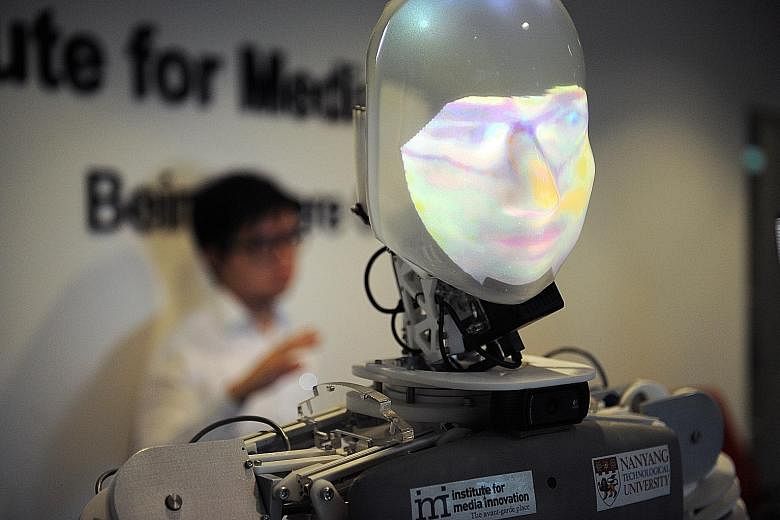Artificial intelligence (AI) could nearly double Singapore's annual economic growth rates by 2035, according to a new report.
It noted that AI could help the country expand faster than major economies such as the United States, Germany, Britain and Japan.
Accenture Research, in collaboration with Frontier Economics, modelled the impact of AI in 33 economies that together generate more than 80 per cent of the world's economic output.
The research compared the size of each country's economy in 2035 in a baseline scenario which shows expected economic growth under current assumptions, and an AI scenario which shows expected growth once the impact of AI has been absorbed into the economy.
With the adoption of AI, Singapore would need 13 years for its economy to double in size, while without AI, it would take 22 years, according to the research.
It also found that AI could potentially increase Singapore's annual growth rate from 3.2 per cent to 5.4 per cent by 2035, translating to an additional US$215 billion (S$295 billion) in gross value added. AI could raise Singapore's labour productivity by 41 per cent by 2035, the highest among developed economies.
"Artificial intelligence heralds a dramatic potential for growth for both the Singapore economy and for humans," said Mr Mark Purdy, managing director and chief economist at Accenture Research.
"Our research strongly shows that AI can unleash remarkable benefits in Singapore and many countries, countering slow economic growth and lagging productivity."
Singapore is already making a big push into AI. The National Research Foundation announced in May that it would invest up to $150 million over five years in AI.SG, a national programme to boost the country's AI capabilities. AI.SG will bring together Singapore-based research institutions plus start-ups and companies developing AI products.
But there are also concerns about the impact such technologies might have on existing industries and jobs.
A report published by Dell Technologies and non-profit research organisation Institute for the Future earlier this month noted that an estimated 85 per cent of jobs in 2030 have not been invented yet.
"We've been exposed to two extreme perspectives about machines and the future: the anxiety-driven issue of technological unemployment or the over-optimistic view that technology will cure all our social and environmental ills," said Ms Rachel Maguire, research director at Institute for the Future.
"We need to focus on what the new relationship between technology and people could look like and... prepare accordingly. If we (empower) human-machine partnerships to succeed, their impact on society will enrich us all."



